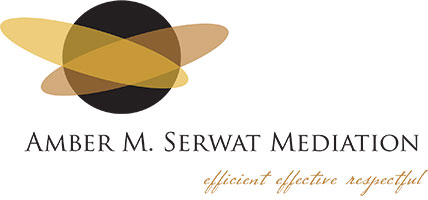Is mediation for me? Mediation misconceptions abound. Read on to see those myths demystified.
1. “Mediation is only for couples who really want to get back together.”
Mediation and marriage counseling are NOT the same. While mediation can improve communication, the intended outcome is not reconciliation.
Mediation is for people who want to get through the divorce process efficiently and get on with their lives. It helps individuals remain in control of their lives and make decisions based on their unique needs (and those of their children), not on being half of a couple.
2. “My spouse intimidates me. I need a lawyer to protect my best interests. Won’t a mediator take my spouse’s side?”
You are the best person to protect yourself. You know your needs and interests better than anyone else. A mediator is a facilitator skilled at empowering self-determination and providing an effective process and environment for settlement.
The objective of divorce mediation is to increase both parties’ understanding and knowledge of individual needs and interests. Mediation allows you to address issues and creates a communication pathway. This is very important especially if there are children involved.
3. “My spouse and I aren’t even speaking with each other. There is no way mediation will work for us.”
The truth is that most people going through a divorce have communication problems. The complexity of problems will vary. A divorce mediator is a qualified professional who helps ensure your communication and negotiations stay on track without getting derailed by emotions.
4. “Couples who have ‘real’ problems cannot mediate.”
In reality if you didn’t have ‘real’ problems you wouldn’t need a divorce mediator. You would resolve your issues independently. As an impartial third party, your divorce mediator works with you and your spouse to reframe your problems and generate workable solutions that are customized for your unique situation.
5. “Our attorneys are urging us to settle. We don’t need a mediator.”
This is a common misnomer. It is important to understand that attorneys are advocates for their client’s needs, wants and legal rights. An advocate is not a facilitator. Settlement meetings that include two advocates lacks the most common component of settlement – a neutral facilitator to manage the process, maintain a respectful and productive environment and reframe issues for better understanding. In most cases, adding a mediator to settlement discussions actually saves money because the process is streamlined when managed by a neutral.
Adapted from an article at DivorceMagazine.com (2003)

